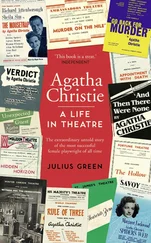Alice Green - Town Life in the Fifteenth Century, Volume 1
Здесь есть возможность читать онлайн «Alice Green - Town Life in the Fifteenth Century, Volume 1» — ознакомительный отрывок электронной книги совершенно бесплатно, а после прочтения отрывка купить полную версию. В некоторых случаях можно слушать аудио, скачать через торрент в формате fb2 и присутствует краткое содержание. Жанр: literature_19, foreign_antique, foreign_prose, Историческая проза, на английском языке. Описание произведения, (предисловие) а так же отзывы посетителей доступны на портале библиотеки ЛибКат.
- Название:Town Life in the Fifteenth Century, Volume 1
- Автор:
- Жанр:
- Год:неизвестен
- ISBN:нет данных
- Рейтинг книги:3 / 5. Голосов: 1
-
Избранное:Добавить в избранное
- Отзывы:
-
Ваша оценка:
- 60
- 1
- 2
- 3
- 4
- 5
Town Life in the Fifteenth Century, Volume 1: краткое содержание, описание и аннотация
Предлагаем к чтению аннотацию, описание, краткое содержание или предисловие (зависит от того, что написал сам автор книги «Town Life in the Fifteenth Century, Volume 1»). Если вы не нашли необходимую информацию о книге — напишите в комментариях, мы постараемся отыскать её.
Town Life in the Fifteenth Century, Volume 1 — читать онлайн ознакомительный отрывок
Ниже представлен текст книги, разбитый по страницам. Система сохранения места последней прочитанной страницы, позволяет с удобством читать онлайн бесплатно книгу «Town Life in the Fifteenth Century, Volume 1», без необходимости каждый раз заново искать на чём Вы остановились. Поставьте закладку, и сможете в любой момент перейти на страницу, на которой закончили чтение.
Интервал:
Закладка:
The Hanseatic League, however, had now come to an end of its triumphs. From this time the English pressed them hard. A law which forbade the import of silk and the export of undressed cloths struck a heavy blow at their trade. Then came the order that Rhine wine must only be carried in English ships. Officials used their infinite powers of annoyance with hearty good will, and the merchant who landed with his goods, harassed first by the relentless officers sitting at the receipt of custom, and then thwarted in every possible way by the Mayor and corporation, 206 206 Schanz, i, 186.
was at last driven by public abuse behind the walls of the Steel Yard, so that in 1490 a member of the Hanse dared scarcely show himself in the streets of London.
Meanwhile the great confederation of Commonwealths itself showed grave signs of falling asunder. The bigger towns that no longer needed the protection of the association were quite ready to forsake it, and in 1501 began to refuse to bring their cloth to the Staple at Bruges, and to look for freer conditions of trade. At the same time the monopoly of the League was being threatened on all sides. The Prussian and Livonian towns treated them as enemies. A Dutch fleet competed with them in the Baltic. A Danish trading company had risen to dispute their monopoly in Denmark. The Swedes shut them out. The Norwegians made intermittent experiments at independence. At last in 1478 came the worst calamity that could befall their trade, the capture of Novgorod by the Muscovites, with the destruction of its free government and the ruin of its position as one of the commercial capitals of the world.
With the demolition of the League factory, the loss of all its possessions in the city, and the whole dislocation of the Eastern traffic, the supremacy of the Hanseatic Confederation was shattered, as the supremacy of the Italians in the Southern trade had been shattered half a century before by the conquest of Alexandria. English Adventurers naturally saw in every fresh trouble that assailed their rivals a new argument for aggression, and welcomed in Henry the Seventh a leader equal to the great occasion. Never had they found a better friend, or one who so finely interpreted the popular instinct of his time. How completely his determination to strengthen by every means in his power the position of the Adventurers in Antwerp against the Hanseatic traders at Bruges, and to bind England and Burgundy together into a united commercial state, fell in with the needs and temper of his people was strikingly shown after a two years’ interruption of commerce with the Low Countries caused by the affair of Perkin Warbeck, when a burst of popular joy hailed the renewal of trade, and the wild enthusiasm of the people gave to the treaty of 1496 which restored the old kindly relations the high-sounding name of the Intercursus Magnus .
The big name has, as usual, imposed a little on later generations, and greater treaties have gone unnoticed for want of an equally pompous title. At first, indeed, amid the political disquiet and the trade depression which marked the early years of his reign, Henry went to work slowly and patiently, and in 1486 even confirmed the Utrecht treaty of 1474 which ensured a number of privileges to the Hanse. But this policy of peace was only assumed for a brief space while he was making ready for war. In 1486 he renewed the commercial treaty made by Edward with Britanny in 1467. 207 207 Schanz, i. 294.
The real campaign, however, may be said to have opened by the Navigation Act of 1489, when the shipping trade was definitely taken under State protection. And what that State protection implied was at once shown in a series of commercial treaties with almost every trading country of Europe, whether its traffic lay in the northern or the southern seas. Building up on every hand alliances against the Hanseatic Confederation he steadily drew to himself the friendship of the Scandinavian peoples tired of the domination of the League. In 1489 he sent an embassy (two of the deputation being Lynn merchants), to make terms for a commercial alliance with Denmark and Norway, and won from the Northern powers freedom of trade for the English in Denmark, Norway, and Iceland, with the right to acquire land, to form corporations and choose aldermen, and to be under special protection of the Danish King. 208 208 Schanz, i. 257.
To defeat the pretensions of Danzig he turned to the Livonian towns, and by treaty with Riga attempted to secure a Russian trade which might open the way of Novgorod and the East to English Adventurers – an attempt which however was frustrated a few years later. 209 209 Schanz, i. 237-42.
A conference was held in 1491 at Antwerp with the Hanseatic envoys, whom Henry with diplomatic insolence kept idly waiting for four weeks till the messengers he had sent to Denmark with friendly proposals of a treaty as unfavourable as possible to the interests of the Hanse, returned with their answer. The promise of this inauspicious opening for the League was amply fulfilled in the long negotiations which lasted at Antwerp from 1491 to 1499, and in which the foreigner was consistently humbled before the triumphant Merchant Adventurer, all his compromises rejected so far as they tended to limit the freedom of the English trader, and the League compelled to accept terms ruinous to its interests and disastrous to its great tradition of supremacy. 210 210 For the negotiations between the Easterlings and the English merchants, see Schanz, ii. 397-430; i. 179-201. In 1498 Archduke Philip, seeing the utter ruin into which Bruges had fallen, tried to revive it by ordering that all foreign merchants should do their business there only, by improving the harbour, and by making it the Staple for English cloths in Flanders . (Schanz, i. 26-27.) In 1501 Philip made Bruges a Staple where English cloth might be sold in Flanders under strict conditions. (Ibid. ii. 203-6.) In 1506 Henry won from the Archduke the right to sell cloth by the yard and to have the manufacture of it finished in all his dominions except Flanders. (Ibid. i. 31.)
The story of these Antwerp negotiations gives us a true measure of the place gained during the last hundred years by the Merchant Adventurers in the North, where, having dealt the last blows to the ancient company of the Staple, and broken the power of the Hanseatic League, their fleets now sailed triumphantly on every sea. And yet this was but half their work; for the North was a small thing to win unless they could also load English vessels with the cargoes of the East and the tribute of the great commercial cities of the Mediterranean. Until the middle of the fifteenth century the trade of the eastern Mediterranean had been altogether carried on by Italians. 211 211 The friendly way in which the English merchants even in 1405 looked on Genoese traders is illustrated in the story told by Fabyan (571), of three carracks of Genoa laden with merchandise plundered by English lords. The Genoese merchants made suit to the King for compensation, and meanwhile borrowed from English merchants goods amounting unto great and noble sums. When their suit was seen to be in vain they made off with their spoils “to the undoing” of many merchants.
It was only in 1432 that the French merchant Jacques Coeur (the stories of whose wealth and power read like fables beside the modest doings of our native traders), had sent out some ships to take part in the Eastern trade; and the Levant was not really opened to Western merchants till 1442, when the Venetians were driven out of Egypt and the monopoly of the Italians broken up. It was very soon after that a Bristol merchant, Sturmys, fitted out probably the first English ship that visited the Eastern shores of the Mediterranean. But the new inheritors of the East were received with bitter jealousies. Rival vessels fought for the spoils and carried off the booty like common pirates; and the Genoese traders in their anger seized Sturmys’ ship on its return voyage and robbed it of its cargo of spices and green pepper. He reckoned his loss at 6,000 francs, and on his complaint to the government all the Genoese merchants in London were thrown into prison until they should give bonds for the payment of this sum. 212 212 Hunt’s Bristol, 97-8.
Интервал:
Закладка:
Похожие книги на «Town Life in the Fifteenth Century, Volume 1»
Представляем Вашему вниманию похожие книги на «Town Life in the Fifteenth Century, Volume 1» списком для выбора. Мы отобрали схожую по названию и смыслу литературу в надежде предоставить читателям больше вариантов отыскать новые, интересные, ещё непрочитанные произведения.
Обсуждение, отзывы о книге «Town Life in the Fifteenth Century, Volume 1» и просто собственные мнения читателей. Оставьте ваши комментарии, напишите, что Вы думаете о произведении, его смысле или главных героях. Укажите что конкретно понравилось, а что нет, и почему Вы так считаете.












